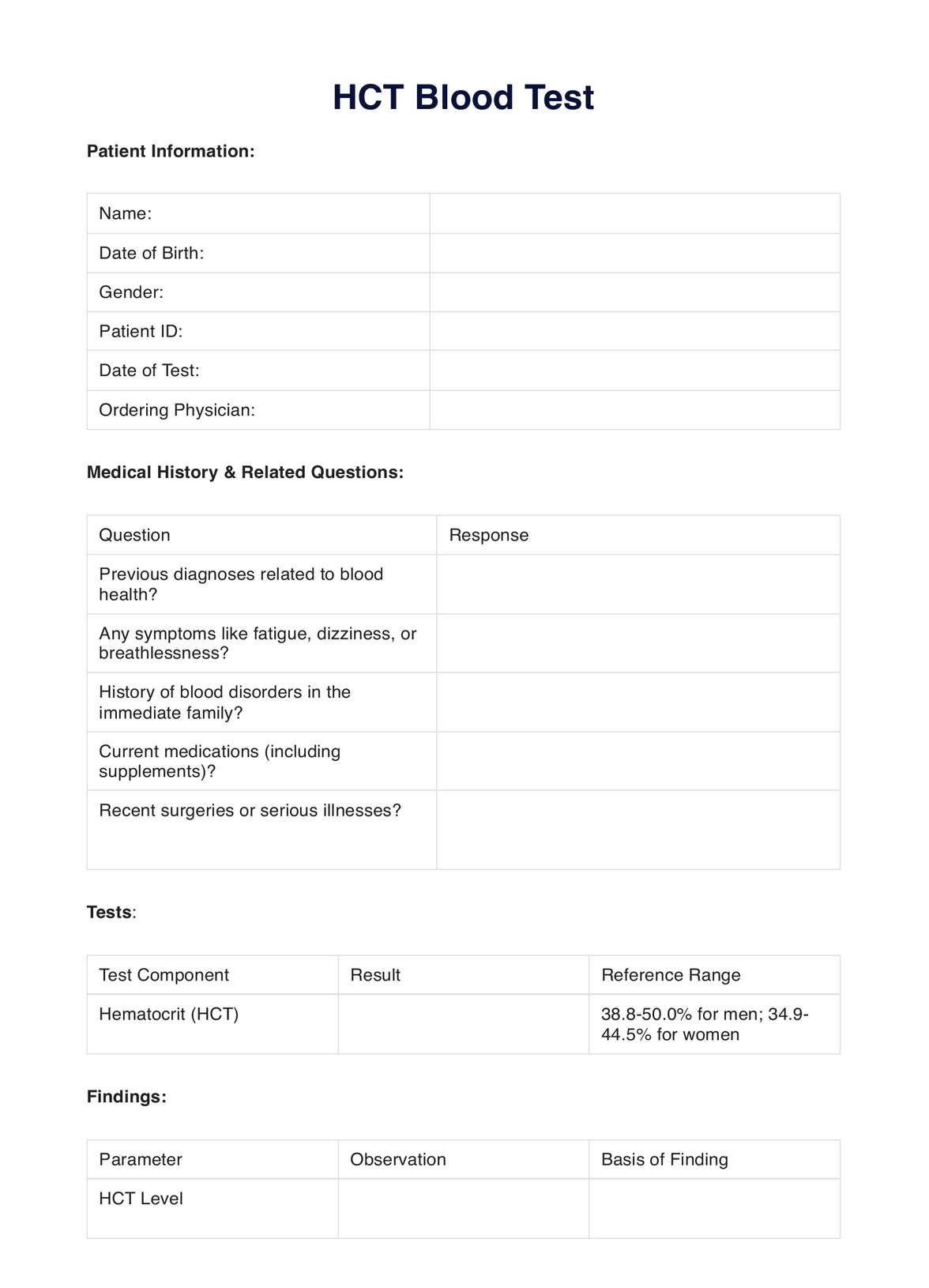What Is An HCT Blood Test?
In medical diagnostics, the Hematocrit (HCT) blood test is crucial to complete blood count (CBC) tests, providing significant insights into a patient's overall health. But what exactly is an HCT blood test, and why is it indispensable in healthcare? Simply put, the HCT blood test measures the proportion of red blood cells to the total blood volume, a critical indicator of conditions such as anemia, dehydration, and many other health issues.
When healthcare professionals discuss blood tests, the emphasis is often on the intricate details the average person understands. However, the HCT Blood Test is straightforward: it's about understanding the space red blood cells occupy in your blood. The significance of this test is monumental, as red blood cells are responsible for transporting oxygen throughout the body, and any imbalance in their proportion can signal underlying health problems.
For healthcare professionals, the HCT test isn't just a routine procedure. It's a gateway to understanding the patient's bodily functions, potentially diagnosing severe health conditions, and formulating a targeted treatment approach. It's not merely about numbers on a report but what those numbers represent in a patient's health and well-being.
In this comprehensive guide, we delve into the nuances of the HCT blood test, offering healthcare professionals an in-depth look at its importance, methodology, and interpretation. With our free downloadable PDF, you'll have a ready-to-use resource, ensuring that your practice remains at the forefront of efficient and compassionate patient care.












